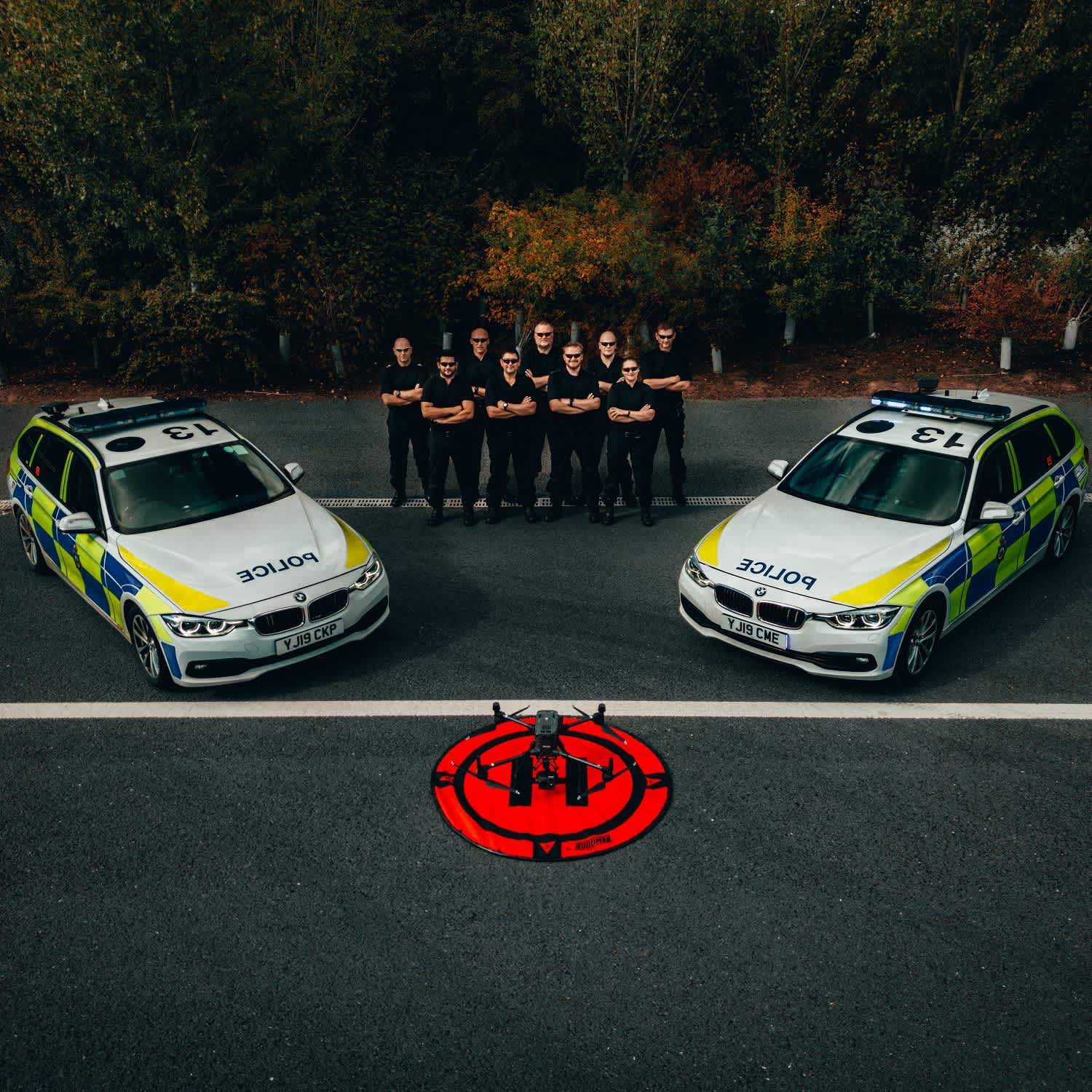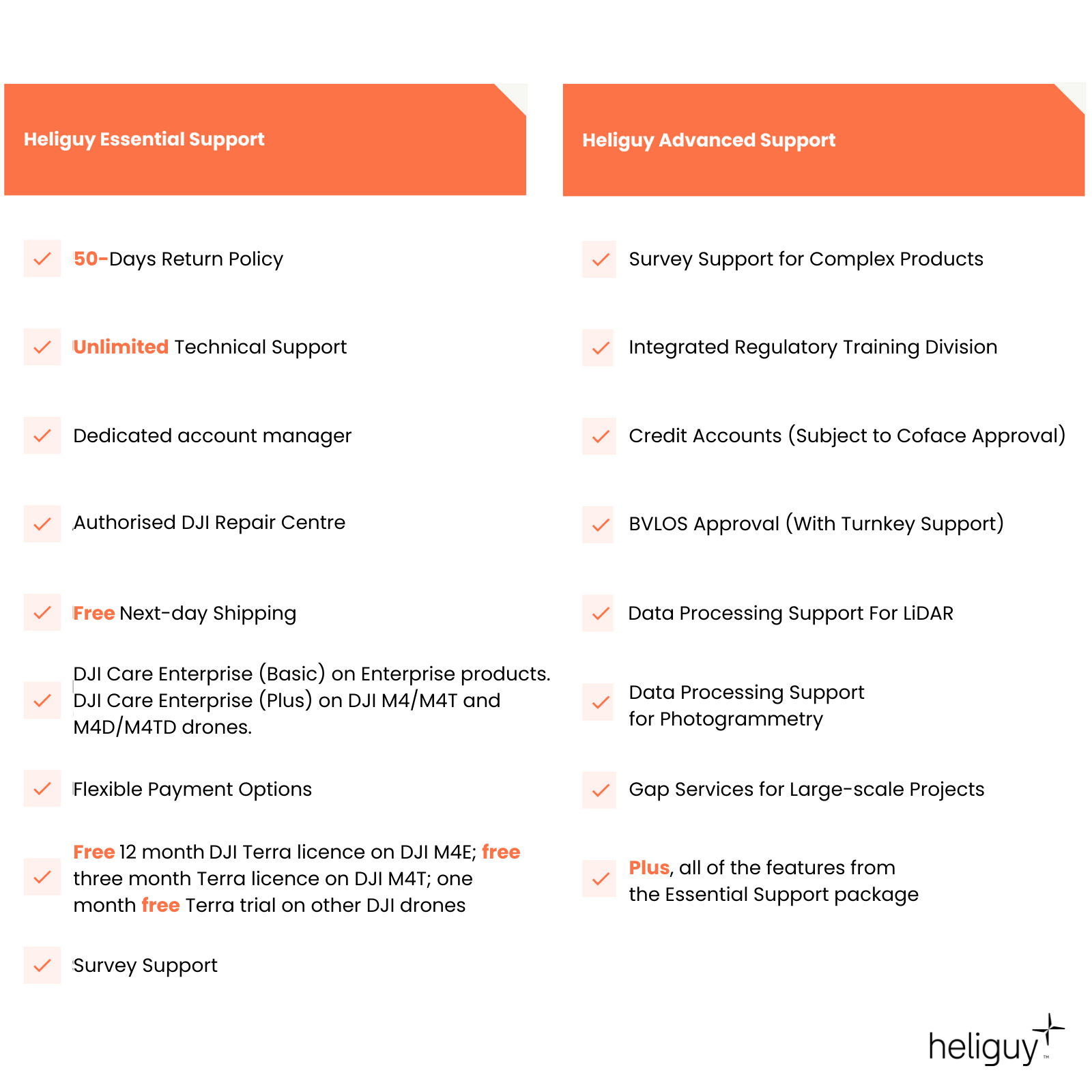GVC Drone Training Course
£0.00
Tax included in UK & Shipping calculated at checkout
50-days return policy
The General Visual Line of Sight Certificate (GVC) is a UK CAA-accredited drone training course, suitable for VLOS operations in the Specific Category. It enables you to apply to the CAA for an Operational Authorisation.
Who Is The GVC For? The GVC is aimed at commercial drone pilots wanting to legally and safely operate drones weighing up to 25kg in built-up areas.
Course Delivery On-demand online theory learning with live support from our instructors, then a remote exam via webcam. Also complete a practical flight assessment and Operations Manual. heliguy™ can deliver closed-course training to organisations with multiple pilots.
heliguy™: Your Drone Training Partner Our in-house instructors have taught 7,000+ candidates, including pilots from Network Rail, National Grid, and UK emergency services. Receive lifetime support with dedicated aftercare.
Overview
Specifications
Support
FAQ
Heliguy Services
Become A Qualified Drone Pilot
What you need to do to pass your GVC
The GVC is a multi-part process, and heliguy™ will support you throughout.
Online Learning: On-demand online learning through the heliguy™ Learning Management System. The content, delivered by the heliguy™ instructors, covers all you need to know to pass the GVC. Access live support from heliguy™ in-house instructors from 9am to 5pm, Monday to Friday.
Remote Theory Exam: Sit your exam remotely via webcam. Answer 40 multiple-choice questions, covering air law/responsibilities, UAS airspace operating principles, and airmanship and aviation safety.
Practical Flight Assessment: Conduct this assessment at one of our UK venues. Demonstrate your ability to control your drone safely and accurately through a series of manoeuvres.
Drone Operations Manual: Submitted to the UK CAA, this document explains how you will conduct operations in the Specific Category under UKPDRA-01. It covers areas such as safety, incident reporting, flight planning, and emergencies. Our Operations Manual creation service streamlines this process and meets the highest industry standards against the requirements of BS ISO 21384-3: 2019.
Operational Authorisation: Once you have passed your GVC, you can apply to the UK CAA for an Operational Authorisation.

heliguy™: Your Drone Training Partner
Lifetime support to expand your drone enterprise
CAA-approved GVC course delivered by our experienced in-house instructors who have trained 7,000+ candidates, including remote pilot drone teams from the likes of Network Rail, National Grid, Sellafield Sites, Manchester City FC, and Phillips 66.
Flexible and on-demand online learning - any time, any place. Prepare for your exam through engaging course material, learn at your own pace, and rewatch content. Got a question? Then access live and remote support from our training team.
Sit your theory test remotely, via webcam, with flexible exam slots available.
Streamlined Operations Manual creation process - judged to meet the highest drone industry standards, endorsed by IQ Verify against the requirements of BS ISO 21384-3: 2019.
Conduct your bespoke flight assessment - tailored to your commercial operation - at any of our UK venues.
Unlimited free resits for the theory exam and flight assessment, and dedicated aftercare support.
For enterprise organisations with a requirement to train multiple pilots, heliguy™ can deliver closed course GVC training for a tailored and personalised learning experience.
Progressive training pathway: Expanded career development with courses such as CPD; consultancy for UK SORA (formerly OSC) applications for complex operations; and Regulated courses.
Blanket access to heliguy™ ecosystem: Consultancy, hardware supply and support, lifetime training suppport, in-house repairs, rental equipment, and global logistics.

GVC Closed Courses
Face-to-face tuition for a tailored learning experience
heliguy™ delivers closed-course GVC training for enterprise organisations with a requirement to train multiple pilots.
We have delivered this type of training to the likes of Network Rail, Phillips 66, and many of the UK's emergency services.
Benefits include:
Private drone training courses: It's your team and our instructors.
Train multiple candidates at once for standardised learning outcomes.
A tailored, yet standardised approach.
Delivered at a venue of your choice.
heliguy™ can supply the hardware to help your team become proficient with the drone you'll use in real-world operations.

Accreditation
![UK CAA Recognised Assessment Entity (RAE)]()
UK CAA Recognised Assessment Entity (RAE)
Authorised GVC/A2 CofC Training Courses
![UK CAA Permission for BVLOS Flights: Operational Authorisation UAS 15435]()
UK CAA Permission for BVLOS Flights: Operational Authorisation UAS 15435
Helping companies unlock BVLOS missions in an AAE with DJI Docks
![The UK's only DJI Gold and S-Level Partner]()
The UK's only DJI Gold and S-Level Partner
Trusted supply on DJI products
![ISO 9001 Certification]()
ISO 9001 Certification
Driving industry standards through robust operational protocols for enhanced safety and reliability
![Training Qualifications UK]()
Training Qualifications UK
Accredited training courses endorsed by TQUK.
![Ofqual-regulated Training]()
Ofqual-regulated Training
Recognised quality mark for meeting accreditation criteria.
![Cyber Essentials]()
Cyber Essentials
Verified data security
![Financial Conduct Authority]()
Financial Conduct Authority
Authorised to conduct regulated financial services
![Armed Forces Covenant Defence Employer Recognition Scheme - Silver Award]()
Armed Forces Covenant Defence Employer Recognition Scheme - Silver Award
Proud supporter of our Armed Forces
![D-U-N-S Registered: 77-916-1210]()
D-U-N-S Registered: 77-916-1210
Verified to conduct international business









